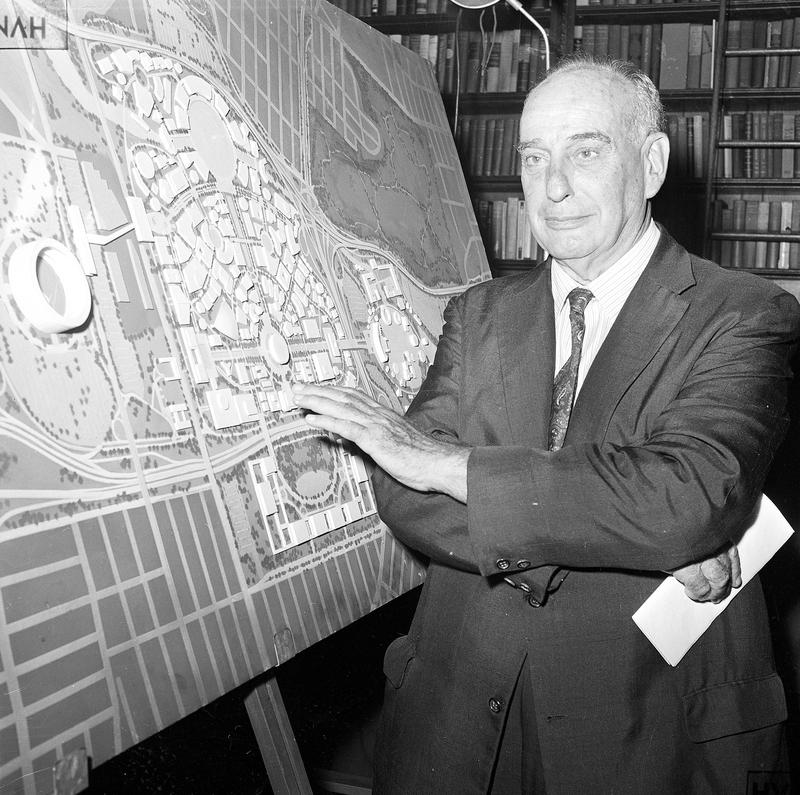 The NYPR Archive Collections
The NYPR Archive Collections
Robert Moses Speech before NYS Judicial Conference

Robert Moses defends the 1964 New York City's World's Fair in this speech in front of the New York State Judicial Conference. He concentrates on the many missing pavilions - organized labor, schools, several nations, and in particular what we calls"the march of law." He also talks about other criticisms of the fair and the difficulties they encountered, including differences in opinion on the proper layout of the Fair and some of the labor problems they encountered.
Justice Allen Beldock begins by speaking of the difficulties in providing a biography of Robert Moses. He speaks in praise of Moses and unites his mission with that of the Judicial Conference - "making democratic government work for the better condition of men."
Moses talks about his anxieties on receiving praise, quoting Robert Browning - 'greet the unseen with a cheer" and telling a joke about Groucho Marx being mistaken for Karl.
He notes that he will be associated by many with the World's Fair. He talks about his poor reception by his critics, whom he in turn criticizes and belittles.
He talks about the World's Fair and the positive responses from abroad. He bemoans the lack of reaction from locals.
He notes the conspicuous gaps in the fair - foreign nations (he notes Britain and Canada) are not present because the US is not part of the Bureau of International Exhibitions. He talks about how to invite nations to the Fair. "The communists" backed out. The new African nations for the most part did not attend. Indonesia dropped out. There is no organized labor pavilion. Schools are under-represented as well. There is no pavilion marking "the march of law" from the founding fathers to today. He goes in depth about what could be contained in such a pavilion and the importance of public works and regional planning. He quotes Browning again - "Man's Reach Should Exceed his Grasp."
He talks about other criticisms of the Fair. He quotes Longfellow - "some rain must fall." He goes into disputes on the layout of the grounds of the fair - pointing out an inappropriate "donut" shaped pavilion. He talks about labor problems he encountered and the burgeoning staff required for the fair. He talks about the variety of criticism he has had at the fair. He compares his role to a theatrical producer - the public does't care about their problems and the opinions of the critics - it's either good or it isn't. He bemoans the type of visitor to the fair who rushes through it, missing out on many parts of it.
Audio courtesy of the NYC Municipal Archives WNYC Collection
WNYC archives id: 150479
Municipal archives id: T1513